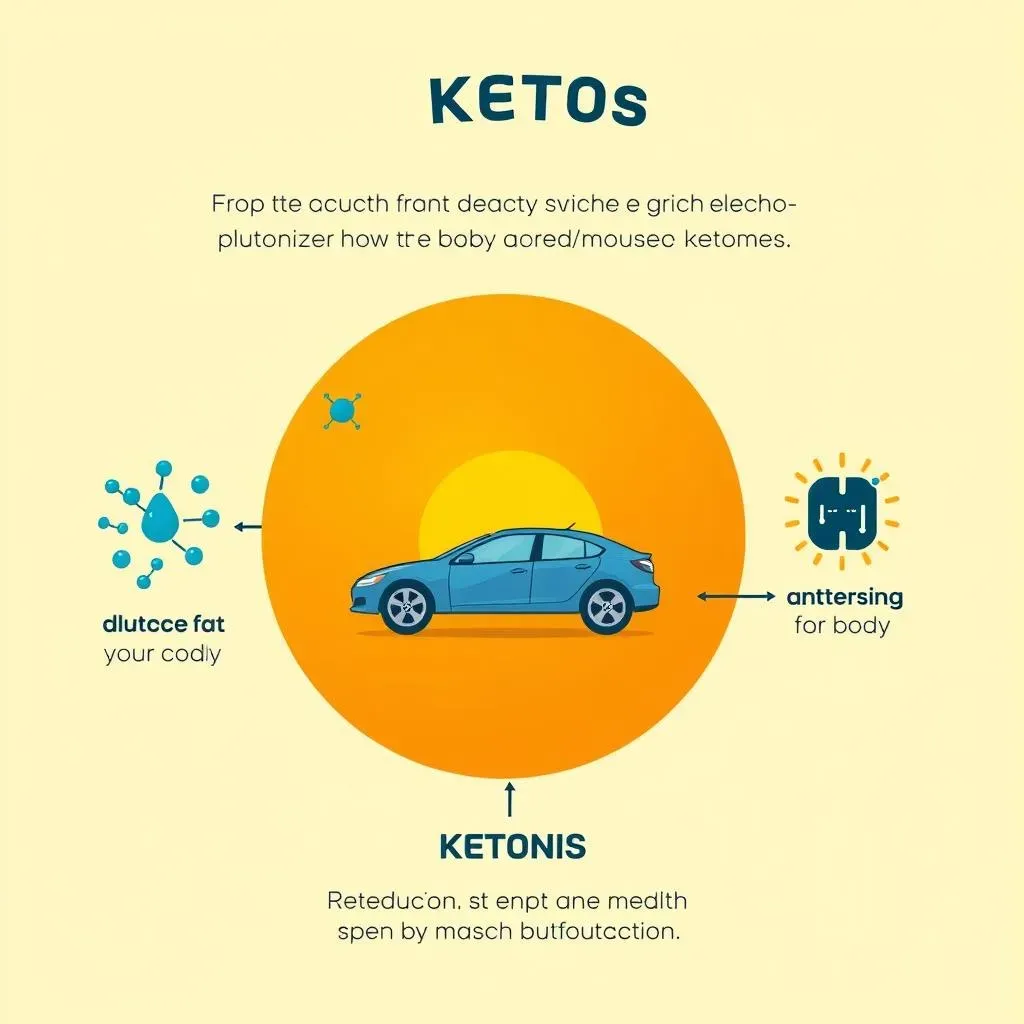Table of Contents
So, you're diving into the ketogenic diet, huh? That's great! But you're probably wondering the big question: when ketosis kicks in? It's a common query, and understanding the process is key to success. This article will be your guide, breaking down the science and the experience of ketosis. We'll explore the fundamentals of ketosis – what it is and how your body gets there. Then, we'll tackle the burning question: how long does it take? This isn't a one-size-fits-all answer; we'll uncover the factors that influence your personal timeline, from your diet and activity levels to your individual metabolism. Finally, we'll look at the telltale signs that ketosis is underway – those subtle shifts in your body that signal the change. Prepare to become a ketosis expert! Get ready to understand when ketosis kicks in and how to navigate this exciting metabolic shift. Let's get started!
Understanding Ketosis: The Basics
Understanding Ketosis: The Basics
Ketosis is all about how your body gets its energy. Normally, your body uses glucose (sugar) from carbs as fuel. But when you drastically cut carbs, like on a keto diet, things change. Your body starts to run low on glucose. It's like your car running out of gas – it needs a new fuel source. That's where ketosis comes in. Your body switches gears and starts burning fat for energy instead. This process produces ketones, which are molecules made from fat breakdown. These ketones become your body's new fuel, and that's what we mean by being in ketosis. Think of it as a metabolic superpower – your body is now a fat-burning machine! This metabolic shift can lead to weight loss, increased energy, and other potential health benefits. But remember, transitioning to ketosis can take time, and everyone's journey is unique. Understanding this fundamental shift is the first step in your keto adventure.
- It's like switching your car to run on a different fuel source.
- Your body is now burning fat for energy.
- This produces ketones, your new fuel.
It's important to note that while ketosis is a natural metabolic state, it's not something everyone experiences the same way. Some people might reach ketosis faster than others, depending on factors we'll discuss later. For example, if you love carbs, cutting them out drastically might be tougher. However, understanding the basics of ketosis will give you the knowledge you need to navigate your journey. If you're unsure about the keto diet, it's always a good idea to consult a doctor or registered dietitian before making significant dietary changes. They can help you personalize your approach and minimize the risks. Want to know more about keto-friendly desserts? Check out our guide on making a keto cake!
Fuel Source | Metabolic State |
|---|---|
Glucose (from carbs) | Normal Metabolism |
Ketones (from fat) | Ketosis |
The ketogenic diet isn't just about restricting carbs; it's about strategically increasing your fat intake. Fats are now your primary energy source, providing the building blocks for those essential ketones. This isn't about eating unhealthy fats, though. Think healthy fats like avocados, nuts, olive oil, and fatty fish. These provide sustained energy and essential nutrients. Still curious about keto-friendly alternatives? You might find our article on keto-friendly fish cakes helpful.
How Long Does It Take? Factors Influencing Your Timeline
How Long Does It Take? Factors Influencing Your Timeline
So, you know *how* ketosis works, but the million-dollar question remains: how long until *you* hit that sweet spot? Truth is, there's no magic number. It's a bit like baking a cake – some ovens are faster than others! For most people, it takes between 2 and 4 days on a strict keto diet (20-50 grams of carbs or less per day) to enter ketosis. But several factors can speed things up or slow them down.
- Carb intake: The lower your carb intake, the faster you'll likely enter ketosis. Think of it as a race – the less baggage you carry (carbs!), the faster you'll reach the finish line (ketosis!).
- Metabolism: Some people naturally metabolize food faster than others. It's like having a turbocharged engine versus a standard one.
- Exercise: Regular exercise can help accelerate the process. Think of it as giving your body an extra push to burn through those stored carbs.
- Body composition: Your current body fat percentage can also play a role. Those with higher body fat may reach ketosis more quickly.
- Electrolyte balance: Staying properly hydrated and maintaining a good balance of electrolytes is also crucial. It's like making sure your car has the right fluids to run smoothly.
Let's say you're aiming for a keto cake, but you're unsure about the ingredients. Our guide on making keto cakes can help you make informed decisions about your ingredients. It might take a bit longer than expected, but the results are definitely worth it!
Factor | Impact on Ketosis Onset |
|---|---|
Low Carb Intake | Faster |
High Carb Intake | Slower |
Fast Metabolism | Faster |
Slow Metabolism | Slower |
Regular Exercise | Faster |
Sedentary Lifestyle | Slower |
Remember, consistency is key. Sticking to your keto plan, even when cravings hit, is crucial for successful ketosis. It's like training for a marathon – there will be tough days, but persistence pays off. If you're struggling to stick to your diet, check out our article on what happens if you eat cake on keto to learn more about potential setbacks and how to handle them.
Signs and Symptoms: Recognizing Ketosis
Signs and Symptoms: Recognizing Ketosis
So, you're on the keto journey, and you're keen to know when your body officially flips the switch to fat-burning mode. The truth is, there's no single, definitive sign. It's more like a gradual shift, with various symptoms appearing at different times and intensities for different people. Think of it as a detective story – you're looking for clues, and the more you gather, the clearer the picture becomes. Some people notice changes almost immediately; others take a bit longer. The most reliable way to confirm ketosis is through testing your ketone levels using a blood, breath, or urine meter. But there are other indicators you can watch for. Let's explore some common signs.
- Changes in Breath: You might notice a slightly fruity or sweet smell to your breath, sometimes described as "keto breath." This is due to the increase of ketones in your system.
- Increased Thirst and Urination: As your body adjusts to burning fat, you might find yourself needing to drink more water and needing to use the bathroom more often.
- Headaches and Fatigue: Initially, some experience headaches or fatigue as their bodies adapt to the new fuel source. This is often called the "keto flu" and usually subsides after a few days.
- Constipation: A change in your diet can affect your digestive system. Constipation is a common early symptom for some people.
Remember, these symptoms aren't guaranteed, and their intensity varies. Some people experience them intensely; others barely notice them at all. If you're concerned about any side effects, always consult a healthcare professional. You can learn more about managing these symptoms by checking out our guide on what happens if you eat cake on keto. It's important to remember that everyone's body is unique.
Symptom | Description | Severity |
|---|---|---|
Keto Breath | Fruity or sweet smell on breath | Mild to Moderate |
Increased Thirst | Feeling thirsty more often | Mild to Moderate |
Increased Urination | Needing to urinate more often | Mild to Moderate |
Headaches | Head pain | Mild to Severe |
Fatigue | Feeling tired or weak | Mild to Severe |
Constipation | Difficulty having bowel movements | Mild to Severe |
Don't get discouraged if you don't experience all these symptoms. The most accurate way to confirm ketosis is by measuring your ketone levels. These tests are readily available online or at pharmacies. If you're having trouble adjusting to the keto diet, remember to focus on staying hydrated and eating plenty of healthy fats. Also, you might be interested in our article on making a 2-ingredient keto cake – it's a delicious and simple way to stay on track. The keto diet's success depends on making sustainable changes.
